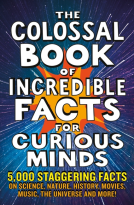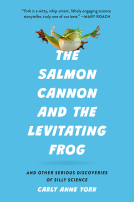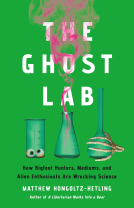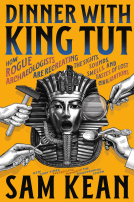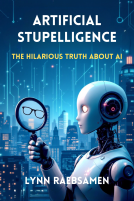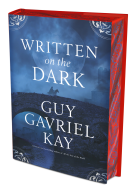
Stories, Dice, and Rocks That Think
How Humans Learned to See the Future--and Shape It
by Byron Reese
This title was previously available on NetGalley and is now archived.
Send NetGalley books directly to your Kindle or Kindle app
1
To read on a Kindle or Kindle app, please add kindle@netgalley.com as an approved email address to receive files in your Amazon account. Click here for step-by-step instructions.
2
Also find your Kindle email address within your Amazon account, and enter it here.
Pub Date Aug 23 2022 | Archive Date Sep 09 2022
Talking about this book? Use #StoriesDiceandRocksThatThink #NetGalley. More hashtag tips!
Description
What makes the human mind so unique? And how did we get this way?
This fascinating tale explores the three leaps in our history that made us what we are—and will change how you think about our future.
Look around. Clearly, we humans are radically different from the other creatures on this planet. But why? Where are the Bronze Age beavers? The Iron Age iguanas? In Stories, Dice, and Rocks That Think, Byron Reese argues that we owe our special status to our ability to imagine the future and recall the past, escaping the perpetual present that all other living creatures are trapped in.
Envisioning human history as the development of a societal superorganism he names Agora, Reese shows us how this escape enabled us to share knowledge on an unprecedented scale, and predict—and eventually master—the future.
Thoughtful, witty, and compulsively readable, Reese unravels our history as an intelligent species in three acts:
- Act I: Ancient humans undergo “the awakening,” developing the cognitive ability to mentally time-travel using language
- Act II: In 17th century France, the mathematical framework known as 'probability theory' is born—a science for seeing into the future that we used to build the modern world
- Act III: Beginning with the invention of the computer chip, humanity creates machines to gaze into the future with even more precision, overcoming the limits of our brains
Available Editions
| EDITION | Other Format |
| ISBN | 9781637741344 |
| PRICE | $27.95 (USD) |
| PAGES | 304 |
Links
Featured Reviews
 Reviewer 725763
Reviewer 725763
In this book, the author shows how the ability to imagine the future helped human society to transform the world. Storytelling, probability theory, and computers have helped us escape the limitations of our individual minds. It's a fascinating, informative, and entertaining read.
Thanks, NetGalley, for the ARC I received. This is my honest and voluntary review.
I loved this book. The writing is conversational with some cute wording and puns, making this a fun read. The story-telling is great and the section on statistics is well explained with very little math. The footnotes are also well worth reading. I also loved the pop culture references. It helps create a relationship between the author and the reader. Indeed, Byron Reese is the type of writer I would like to have coffee with. Overall this is a great read. Thank you to Netgalley and BenBella Books for the digital review copy. .
Just the book for non-fiction readers like me who do not want to pick up a very "serious" non-fiction book but also want to read a fun, informative one.
And this is the one for me. For the life of me, I couldn't finish up read Sapiens, but this one grabbed my attention right from the very first page (I forgot! The blurb got me first!).
I find the contents very accessible for everyone young and old. The presentation of the contents is very easy to the eyes and so it gives the "oh I can read this book very easily" kind of vibes. And so it did too!
I find the division of the main contents into three main sections under fun headings a clever way of keeping the attention of the readers. They deal with the past, the present and the futuristic concepts/ideas what we would most possibly make happen in the very near future.
A good read which is informative, fun and unique.
Thank you, BenBella Books, for the advance reading copy.
Readers who liked this book also liked:
Nigel Henbest; Simon Brew; Sarah Tomley; Ken Okona-Mensah; Tom Parfitt; Trevor Davies; Chas Newkey-Burden
Entertainment & Pop Culture, Humor & Satire, Nonfiction (Adult)
